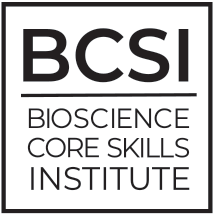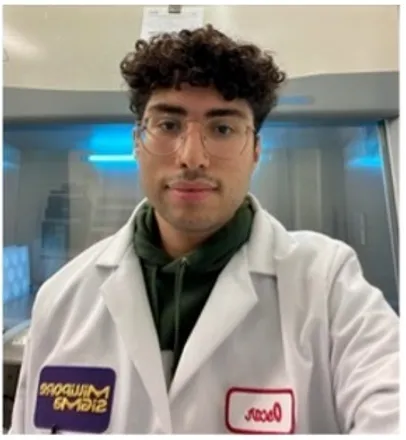“If someone were to ask me about BCSI, I’d tell them it is an inspiring, passionate organization. They just cared about me and my career.”
-Oscar Ramirez, Quality Control Microbiology Technician, Millipore Sigma, Kansas City, Kansas
Oscar’s Story – Our Mission Moment
When people ask us why we created the Bioscience Core Skills Institute (BSCI), many reasons come to mind, but our backgrounds as educators always bring us back to the students. At BCSI, we are changing the status quo. We imagine an inclusive, thriving future filled with passionate science-minded folks from a variety of backgrounds.
One story that reflects how this can become reality starts on the left column of Oscar Ramirez’s résumé, where he lists certifications from us in safety-hazard assessment and small volume metrology. These labels might appear heavily scientific or confusing, but for leaders in the fast-growing biotech industry, these words represent outside validation that Oscar has some of the skills that they need to fill countless jobs.
‘The Microcredential Experience’
In Oscar’s case, his journey to earning these microcredentials began when he crossed paths with our co-founder, Angela Consani, then an instructor at Kansas City Kansas Community College (KCKCC). Angela invited Oscar to a “microcredential experience” that we organized in our early days.
“If someone were to ask me about BCSI, I’d tell them it is an inspiring, passionate organization,” Oscar said. “When they are conducting their evaluations, they never once just told me I was wrong, they showed me how to improve and asked what else I was interested in or curious about. They just cared about me and my career.”
Oscar had been through other certification programs, which “only told me whether I had passed or failed. They were done with me after that.”
Even after completing his initial evaluations with us, Oscar kept up with our messages about what was happening in this field. He credits a message he received from Angela about a job fair with opening his eyes to what getting microcredentials could mean for his career. Millipore Sigma, which produces “state-of-the-art tools, services and expertise to perform experiments and engineer new products”, caught his eye.
‘Believe it or not, they wrote back’
It is important to note that Oscar could also get a microcredential in proactivity. You see, he sent an email message to Millipore Sigma explaining that, even though he had not completed a degree, he was interested in this field.
“Believe it or not, they wrote back,” Oscar said. “They sent me over to the coordinator who helped me get into an entry-level position.”
In Oscar’s experience, he has now seen the disconnect in the industry, where college graduates may have a degree but lack the experience or wording on their résumés that demonstrate what they can do.
“The industry wants people with experience, and that does not always come with a college degree, especially if someone does not have lab experience. Sometimes, I know people with degrees don’t want entry-level positions,” Oscar said. “My experience is I learned a lot in my entry level position about lab operations, and that really showed me that I wanted a career in this area.”
‘Working in the field while going to school is good for me’
In terms of Oscar’s career, his résumé includes another milestone: a promotion in April 2022 to Quality Control Microbiology Technician. One promotion and nearly two years into this job, Oscar’s experiences include more skills, such as Gram staining, subculturing, incubation, enumeration of plate processes, basic laboratory testing (including but not limited to endotoxin and bioburden assistance of scientists).
What’s equally remarkable is that Oscar is balancing this job as he returns to taking classes at KCKCC. Ultimately, he aims to enroll at University of Kansas -Edwards Campus to complete a bachelor’s degree in biotechnology.
He rightly calls out how getting a job before securing these degrees helped create a career path that fits his learning style.
“I want to continue learning as I go,” Oscar said. “For me, it is hard for me to learn unless I see it. That is why working in the field while going to school is good for me.”

